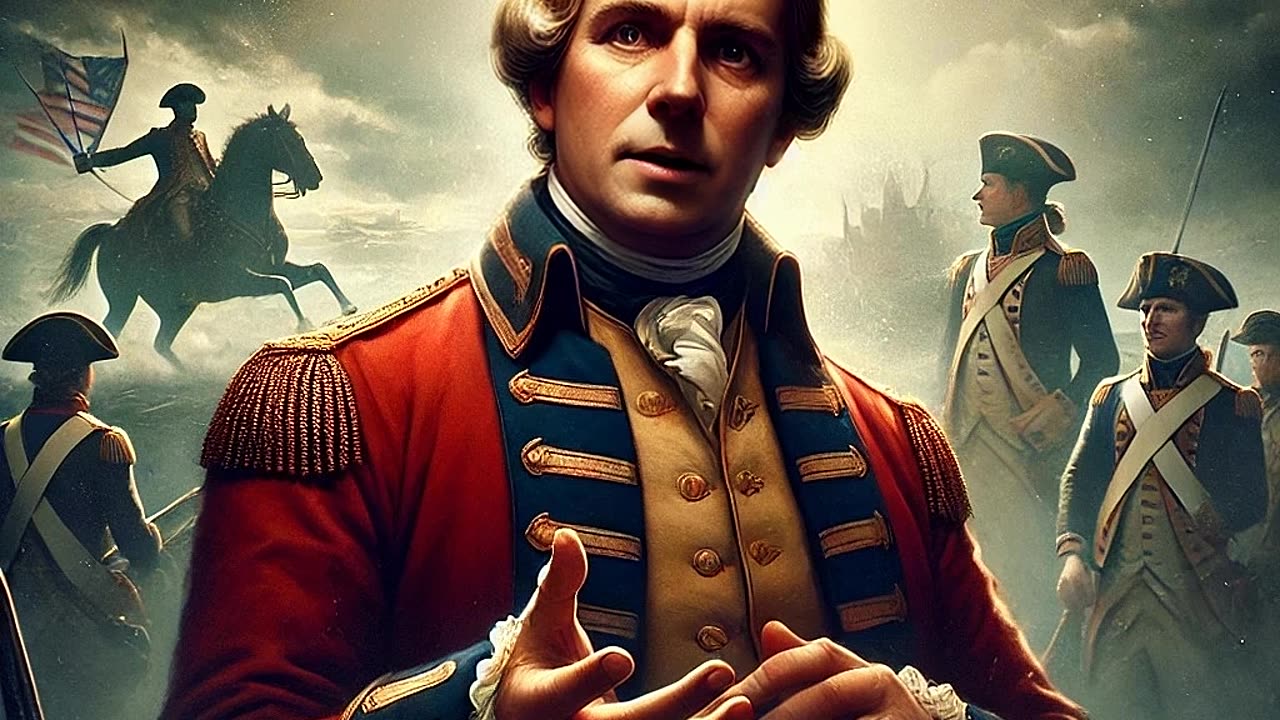Premium Only Content

General Howe Commander in Chief of the British Army in the American Revolution
Presented to you by: http://www.HistoricalConquest.com
Read more on our blog at: https://www.historicalconquest.com/blog
My name is William Howe, and during the American Revolutionary War, I commanded British forces in a campaign that would shape the future of an empire. My role as Commander-in-Chief of His Majesty's forces in North America was both a great honor and an immense challenge, and it is my part in the war that I will now share with you.
In 1775, I arrived in Boston with fresh troops to suppress the growing rebellion in the colonies. Little did I know then that this rebellion would transform into a full-blown revolution. Early on, I took command at the Battle of Bunker Hill, which you may know better as the Battle of Breed’s Hill. We had intelligence that the colonial forces were fortifying positions around Boston, and I was tasked with dislodging them. On June 17, 1775, I led my men up the slopes of Breed’s Hill, expecting a quick victory.
But the colonial militia was more tenacious than anticipated. They fought with a determination I had not seen before, inflicting heavy casualties on my men as we made our assault. Despite our ultimate victory, it came at a high price, with over 1,000 British soldiers dead or wounded. That day, I learned that the Americans were not to be underestimated. They were fighting for something far deeper than just grievances—they were fighting for a new kind of freedom.
As the war progressed, I sought to crush this rebellion by taking decisive actions. I replaced General Thomas Gage and became Commander-in-Chief of the British forces in North America. In 1776, my campaign shifted to New York, where I led a successful attack on General George Washington's Continental Army. We drove the rebels out of Long Island and then Manhattan, forcing them into retreat. I believed that by capturing New York, we would cut the colonies in two and sever the rebellion’s lifeline.
But for all our victories, the Americans, led by Washington, were elusive. After New York, we pursued them into New Jersey, but the Continental Army managed to slip away, time and again. Washington's bold attack on Trenton on Christmas night 1776 was an unexpected blow to our efforts, showing that even in the cold of winter, they would not give up.
Throughout the war, I struggled with how best to balance military force with the hope of a political settlement. I knew many in Britain wanted the war to end swiftly, and they hoped the Americans would surrender if we applied enough pressure. But after the Battle of Saratoga in 1777, where General Burgoyne’s forces were defeated, it became clear that the rebellion was stronger than we had initially thought.
I resigned my command in 1778, frustrated by the lack of progress and by criticisms from my superiors in London. Looking back, I realize that while we won many battles, we never fully grasped the spirit that drove the Americans. It wasn’t just about land or taxes; it was about their determination to create something new, something they believed in with all their hearts.
As I returned to England, I left behind a war that would continue for several more years, but the lessons I learned about leadership, about the power of ideals, and about the human will to fight for freedom have stayed with me. My role in the American Revolution was one of strategy and battle, but in the end, it was the hearts and minds of the people that determined the outcome.
Visit us at: https://www.historicalconquest.com/marketplace
#historicalconquest #history #historical #ancientamerica #ageofexploration #france #french #iroquois #native #nativeamerican #nativeamericanhistory #british #england #religiouspersecution #expansion #truehistory #settlers #settlement #spain #france #French #Frenchhistory #frenchcolonial #frenchheritage #colonizers #colonizer #FrenchandIndianWar #RevolutionaryWar #AmericanRevolution
-
 0:59
0:59
The Historical Conquest Channel
3 days agoSarah Bagley Tells Her Story of Taking on Big Corporations, Fighting for the 10 Hour Work Day
111 -
 LIVE
LIVE
The Tom Renz Show
1 hour agoCDC Will Study Link Between Vaccines and Autism, AOC Says Musk is Unintelligent & SDNY
997 watching -
 1:28:11
1:28:11
Steven Crowder
4 hours ago🔴 What We've Missed | A Pop Culture Catch-Up
332K207 -
 LIVE
LIVE
Ben Shapiro
1 hour agoEp. 2153 - The Democratic Collapse CONTINUES!
4,749 watching -
 LIVE
LIVE
The Big Mig™
1 hour agoGlobal Finance Forum From Bullion To Borders We Cover It All
100 watching -
 DVR
DVR
Benny Johnson
2 hours ago🚨Trump SHOCK Announcement LIVE Right Now | Trump Assassination Report Release, Assassin in Court
122K72 -
 1:06:46
1:06:46
The Rubin Report
3 hours agoDems Furious at Gavin Newsom for Admitting This to Charlie Kirk
49.9K32 -
 2:01:07
2:01:07
LFA TV
17 hours agoDEATH OF THE DEMOCATS! | LIVE FROM AMERICA 3.7.25 11AM
40.8K13 -
 LIVE
LIVE
The Dana Show with Dana Loesch
1 hour agoThe Dana Show LIVE On Rumble! | 03-07-25
733 watching -
 27:24
27:24
Tudor Dixon
2 hours agoThe Left’s Madness with Ryan Girdusky | The Tudor Dixon Podcast
14.9K2